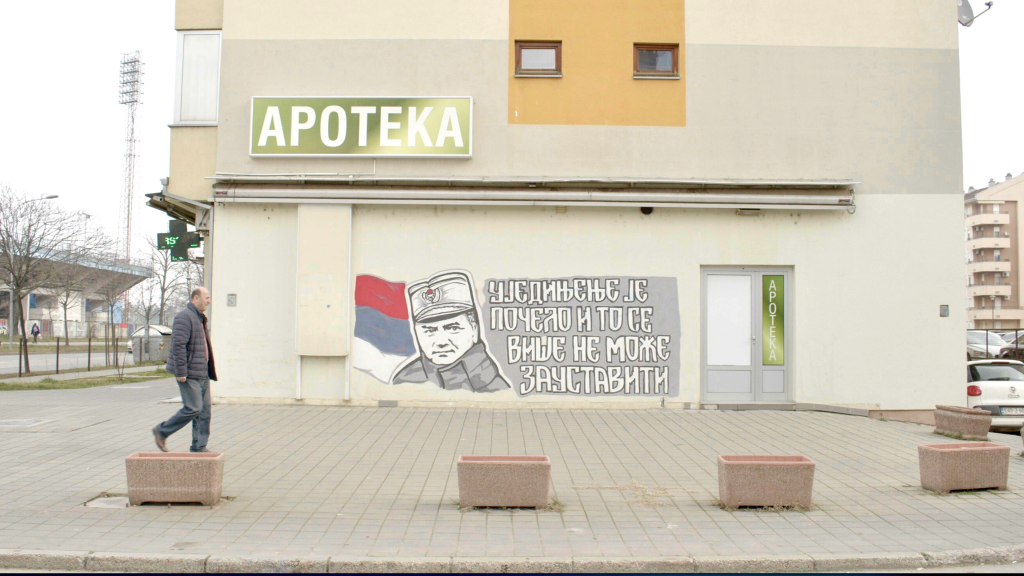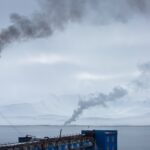Russia’s re-invasion of Ukraine is reawakening war demons in Bosnia and Herzegovina. Putin-backed Serb and Croat nationalists are threatening to tear the country apart. The Bosnian Serb member of Bosnia’s presidency, Milorad Dodik, recently admitted that Russia’s setback in Ukraine has delayed his plans for secession, while openly keeping ties with the Kremlin. In the meantime, Bosnian civilians hold their breath for fear of another conflict. Many plan to leave the country, if they have not already.
When the war in Bosnia began, its capital city, Sarajevo, fell under siege. It was on 5 April 1992 that Bosnian Serb militias encircled the age-old city. They had set their eyes on the capital after Bosnia and Herzegovina had declared independence from the crumbling Yugoslavian state. In order to create an ethnically homogenous Serb republic, the Bosnian Serbs wanted to ‘cleanse’ Sarajevo of its non-Serb population.
62-year-old Vahid Tanović still remembers the four-year siege of Sarajevo (1992-1996) as if it were yesterday. “There were snipers on every hill surrounding the city. In addition to that, tanks were constantly shelling us.”
Sitting in a restaurant in the middle of Sarajevo’s old town, he tells us how one of the Serbs’ shells hit his house while he was tending to his garden. The roof of one of the adjacent buildings collapsed. He was lucky to survive his brush with death.
As an engineer, Tanović quickly realised that the besieged city would not survive winter without a steady supply of gas. He disguised himself as the bodyguard of the city’s cardinal, managed to get on a plane to the Netherlands and asked the Dutch Ministry of Foreign Affairs for help. Jan Pronk, the then Dutch Minister for Foreign Trade and Development Cooperation, called on the Dutch Red Cross to assist Tanović.
Two months later, Tanovic brought back dozens of gas installations to Sarajevo. Homes and hospitals could now be heated and bread production doubled (The Saving of Sarajevo, Red Cross, 1997).
Today, Tanović fears that conflict could break out once more. He tells us that nationalist parties are trying to divide the country and are winding people up with extremist rhetoric. “There can only be one future for Bosnia, and that’s one without the sickness that is nationalism.”
Over the last couple of years, provocative discourse from Serb and Croat nationalists in Bosnia has intensified. Since 1995, peace has been barely preserved by the Dayton Agreement.
A High Representative, currently Christian Schmidt, is charged with protecting peace and stability in the country if Bosnian politicians fail to do so. In November 2021 however, Schmidt issued a report to the UN Security Council, warning that conflict could return to the country and that Bosnia is in danger of collapse.
Tensions in Bosnia rose even higher when Russian President Vladimir Putin sent his troops to the Ukrainian border late last year. Milorad Dodik, the Russian-backed leader of the Serb-majority Republika Srpska (RS) entity, announced that he wanted to pull the RS out of national institutions such as defence, police, justice and taxation.
This would amount to de facto secession from the rest of Bosnia and Herzegovina, and would be a violation of the Dayton Peace Agreement. “This is the moment when Republika Srpska gains its freedom,” Dodik promised supporters.
To reinforce this rhetoric, Dodik’s party, which governs the RS entity, staged a military parade in the entity’s capital Banja Luka, on 9 January. This was officially to celebrate the 30th anniversary of the RS’ self-proclamation in 1992, under the leadership of convicted war criminal, Radovan Karadžić. This was quickly followed by the start of the Bosnian War, and a genocidal campaign that saw an estimated 100,000 Bosnians murdered, the vast majority of whom were Bosniaks.
NATO and EU officials have warned that instability could intensify in Bosnia and Herzegovina, as a result of events in Ukraine. Soon after Russia’s invasion of Ukraine, the EU decided to almost double the size of its EUFOR peacekeeping force from 600 to 1,100 troops.
The United States and the United Kingdom have both imposed sanctions against Dodik and other individuals accused of endangering the territorial integrity of Bosnia and Herzegovina.
In the meantime, the Bosnian Serb leader is blocking Bosnia’s attempts to place sanctions on Russia. During a visit by Dodik to St. Petersburg on 17 June, Putin praised the Serb leader for ‘remaining loyal’ to Moscow, despite ‘strong international pressure’. Dodik in turn thanked Putin for supplying gas to the Republika Srpska.
It’s not just nationalism that has poisoned Bosnian’s politics. Stella, a teacher of English in Banja Luka, meets us in front of the Orthodox Church in the city centre. Corruption is commonplace in the RS, she tells us: “I know people who told me they were given money and food in exchange for votes for Dodik.”
However upset Stella is, she doesn’t blame those voters. Voting for the right politician can act as a lifeline: “We are constantly afraid of hunger and unemployment” she sighs, while looking at the parliament building opposite the church. “If you are in need of a job, you will need to have someone to vouch for you. And Dodik is one of those people who can do that.”
She takes us to one of several murals honouring Serb war criminals you can find in Banja Luka. Painted on the corner, next to a local apothecary, is a large depiction of Serb general, Ratko Mladić. Mladić was convicted by the ICTY for crimes against humanity and genocide, including the one committed against 8,372 Bosniaks in Srebrenica. The Cyrillic text next to his face reads “the unification of all Serbs has started. There is no stopping it.”
Stella feels uneasy standing in front of the mural. Her explanations in English are drawing the attention of passersby. “Nationalism in the Republika Srpska is mostly represented through older people. Young people aren’t the ones who see themselves as nationalists.” In reality, however, the glorification of convicted war criminals is not restricted to age.
On multiple occasions, young Dodik supporters have taken to the streets to sing Islamophobic songs and hail Mladić. At the beginning of this year, the mayor of Banja Luka, 29-year-old Draško Stanivuković, invited architects to design a monument “to the fallen and missing soldiers in the patriotic war of the Republika Srpska.”
Stella fears that war in Ukraine will give Dodik ideas. She tells us that the weapons which were used in the war are still in the hands of regular civilians. The trauma of war is still very much present in the minds of people, but so are the remnants of ethnic nationalist agendas. “We are constantly wondering when something will happen, and we have to move from our homes”.
When asked if EU membership for Bosnia would make people in Bosnia feel more safe, she sighs: “There is still a lot to fix here, before we can even think of joining the EU.”
At the city’s park, I met with Srđan Puhalo, a professor, columnist and critical opponent of Dodik. Puhalo is yet to apologise for questioning the number of children murdered by Serb forces in Sarajevo, in an opinion piece published in May of this year.
“The political leadership in the Republika Srpska ignores Bosnia and Herzegovina. Dodik promises that Republika Srpska will be a state of its own one day,” says Puhalo. “There is a fear for the future and possible conflict, as much here as in Sarajevo.”
He doubts, however, that this will happen any time soon. “Republika Srpska doesn’t have the capacity to wage war on its own. We don’t even have any resources to back up a possible war.”
Puhalo agrees that Dodik needs Russia “in order to look menacing.”
Russia’s desire to have a hand in the future of Bosnia and Herzegovina is also evident from Moscow’s attempt to undermine the impact of Bosnia’s OHR.
When Christian Schmidt sought to present his security report to the UN Security Council in November 2021, Russia and China, then both members of the council, intervened. They insisted that Schmidt had no right to speak because the Security Council had never officially recognised his authority.
When, in the same month, the UN Security Council extended the EUFOR peacekeeping force in Bosnia and Herzegovina, any mention of the office of an international peace envoy was removed from the text of the resolution, constituting another placation of Russia and China.
Russia’s ambassador to Bosnia, Igor Kalbukhov, has praised Dodik’s efforts in blocking NATO membership for Bosnia. In a remarkably direct threat to Bosnia’s sovereignty, Kalbukhov stated that while Bosnians have the right to decide to join NATO, Moscow “reserves the right to respond”.
British Foreign Secretary Liz Truss has stated that the signs of Russian meddling in Bosnia and Herzegovina threaten to take the Balkans back to “those dark days” of the 1990s.
The threatening language of Dodik and his Russian backers has led to high anxiety among Bosnians. Faruk Šehić, a beloved Bosnian writer, shares these concerns. “Bosnia and Ukraine are pushing against each other like tectonic plates,” he says.
“I am sure that, should the Russians soon achieve new successes at the front, Dodik’s arrogance and animosity will increase again.” When the Bosnian War began in 1992, Šehić took to arms as a volunteer. He still has a scar from the war on his left forearm. “I feel again that eerie atmosphere of the nineties. Extremists like Dodik again label Bosnian Muslims as ‘other’.”
Dr. Hikmet Karčić, a genocide and Holocaust scholar based in Sarajevo, fully echoes Šehić’s concerns about a new war: “Dodik is on track to secede his Republika Srpska. He has a militarised police force, he has armoured cars and rocket-propelled grenades delivered via Russia and Serbia. His militias can be deployed immediately. He has a flag and an anthem. And he has a powerful ally with Russia who can get a free conflict in Bosnia to tease the EU and NATO.”
The political tensions within Bosnia and Herzegovina, as well as the widespread corruption that is paralysing the country’s economy, are having a negative effect on young people who have grown up in the post-war years.
“My generation grew up in the postwar trauma” says Nadia Si, a DJ based in Sarajevo. On the weekends, she performs at the Trezor nightclub, located behind the infamous Holiday Hotel. It was from this hotel that on 6 April 1992, as peaceful demonstrators massed outside the Bosnian parliament building, shots were fired by Bosnian Serb snipers.
Nadia wants to leave the country as fast as possible. “Every day I wake up and I’m concerned for my country,” she says. “I’m feeling like it’s tearing apart more and more.”
To her, it’s no surprise that a lot of her friends are trying to leave the country for Western Europe. “Why stay here if there is no future? It hurts to even think about leaving, but I see no positive change in the near future. These tensions could lead to another war, and I do not want to experience the same horrors as my parents.”


